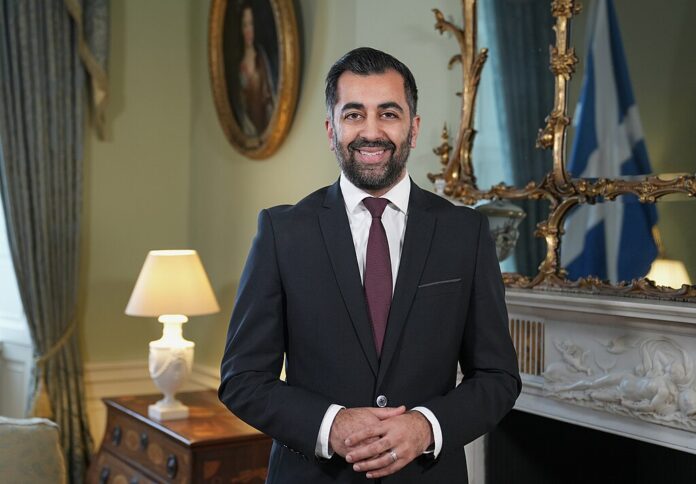Scottish government investigates £250,000 funding amid allegations of potential conflicts of interest
Humza Yousaf, the former First Minister of Scotland, finds himself under scrutiny as questions arise regarding a £250,000 donation made to a Gaza aid agency while his in-laws were trapped in the warzone. This controversial funding to the United Nations Relief and Works Agency (UNRWA) has sparked a probe, although Yousaf insists there is no link between the payment and the safe passage granted to his family members.
The donation was approved earlier this year after Yousaf reportedly overruled officials who had recommended a smaller contribution to Unicef. Instead, he directed a substantial amount of taxpayer money to UNRWA, which has faced criticism in the past for alleged ties to Hamas.
Embed from Getty ImagesYousaf made the decision just before a meeting with UNRWA officials on November 2, the same day his in-laws received safe passage out of Gaza. While the Scottish Government has stated that Yousaf is not being investigated for conflicts of interest, the situation has prompted a broader review of how the government responds to humanitarian crises.
This inquiry follows a freedom of information request that brought the matter to light. A government spokesperson clarified that any allegations of ministerial misconduct related to this humanitarian aid are “completely inaccurate.” However, the Scottish Government plans to conduct a review of its processes for handling global humanitarian issues, with details to be announced soon.
The decision to donate a significant amount from the International Development Fund, which is typically allocated for projects in specific partner countries, raises further questions about accountability and transparency in government spending.
As the situation unfolds, Yousaf’s political career hangs in the balance, especially after stepping down as First Minister in April. The controversy has reignited discussions about the Scottish National Party’s (SNP) handling of funding and its implications for governance.
Analysis
Political Perspective
This episode exposes the delicate interplay between humanitarian aid and political accountability. Yousaf’s decision to intervene in funding highlights the significant power held by leaders in shaping policy. The controversy also raises concerns about how such actions can affect public trust and the credibility of the SNP. The fallout from this incident could lead to increased scrutiny of future government actions, potentially reshaping political dynamics within Scotland.
Social Perspective
The situation reflects a growing societal awareness regarding the complexities of humanitarian aid. Many citizens are increasingly concerned about how their government allocates funds, especially during crises. The public’s demand for transparency in governmental actions is a crucial factor in this narrative, indicating a shift towards greater civic engagement and accountability.
Racial Perspective
This controversy touches on issues of racial equity in humanitarian responses. Aid directed towards Gaza raises questions about how different communities are prioritized in crisis situations. Yousaf’s actions may call into question whether the funding aligns with broader societal commitments to equality and justice in humanitarian efforts, particularly for marginalized communities.
Gender Perspective
The involvement of Yousaf’s in-laws in this situation brings gender dynamics into the spotlight. The incident underscores the often-hidden role women and families play in crises. As discussions around humanitarian aid evolve, the need for gender-sensitive approaches becomes paramount, ensuring that women’s voices and needs are adequately addressed in funding decisions.
Economic Perspective
From an economic standpoint, this controversy emphasizes the importance of judicious public spending. The £250,000 donation is a significant sum that raises questions about prioritization and resource allocation. The Scottish Government’s review of its funding processes may lead to more stringent oversight and a reevaluation of how aid is distributed, impacting future economic strategies in crisis management.
